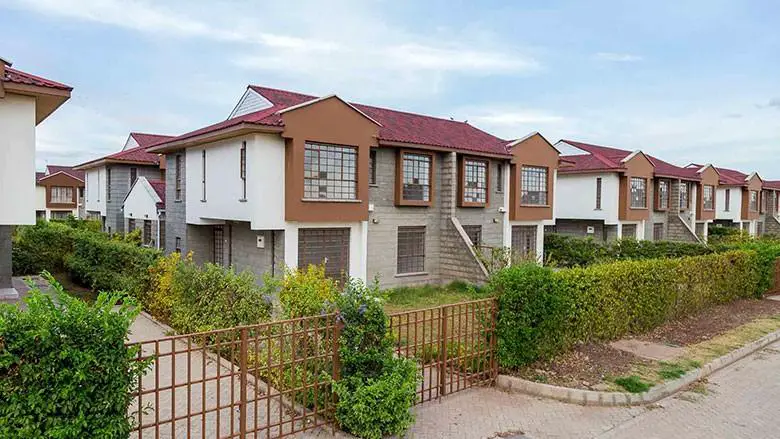By 2030, nearly half of Kenyans will be living in cities and ‘British Standards’ on housing could be coming to Kenya to address the housing challenge.
With half of Kenya’s population aged under 18, many young people are moving to urban areas in search of jobs, opportunities and more choices.
Kenya’s growing urban population need sustainable, resilient, affordable housing; getting this right is key to Kenya’s development.
‘British Standards’ housing coming to Kenya
At a two-day symposium on affordable housing and sustainable infrastructure co-hosted by the UK and Kenya on 21 and 22 May at Strathmore University, British High Commissioner to Kenya, Nic Hailey, reiterated the UK Government’s commitment to progress on affordable housing and sustainable infrastructure.
He said: “The UK is proud to support the Big 4 agenda in Kenya and to work with the Kenyan government to address the challenge of delivering affordable housing for all. To deliver on this policy priority, we need to leverage research, technology and innovation, and this joint symposium is doing just that.”
The symposium was supported by the Global Challenges Research Fund and the UK Collaborative on Development Research. It brought together more than 200 policymakers, leading researchers, business and civil society delegates.
Those in attendance were exploring the potential for new innovative collaboration on affordable housing and sustainable infrastructure.
Hosted at the request of the UK-Kenya High-Level Oversight Board on Science, Technology and Innovation, the symposium showcased how strong partnerships between the UK and Kenyan stakeholders are delivering innovations in housing and urban development – from changing how people apply for mortgages, to using technology to turn plastic waste into pavements.
Kenya’s quest to provide quality housing mired in controversy
Peter Okwanyo, Secretary Administration, State Department for University Education and Research, Ministry of Education said:
“Research, Science, Technology and Innovation presents a unique platform for the generation of new knowledge to overcome barriers to affordable housing, healthy cities, resilience and affordable urban infrastructure. Affordable housing is recognized as an enabler to the attainment of Sustainable Development Goals (SDGs) and the UK-Kenya Partnership is a powerful tool for application in the enhancement of their attainment”.
Kenya’s quest to provide quality housing is mired in controversy since the government does not have a clear plan on how the houses will be allocated. This is despite Kenyans being forced to contribute to the scheme through deductions to their salaries every month.
Many feel that the scheme is an avenue to a looting spree by the Kenyatta government.
The UK’s Minister for Africa, Harriett Baldwin said: “Affordable Housing and Sustainable Infrastructure are challenges everywhere, so it is good news that the UK and Kenya are working together to turn world-leading research and innovation into practical solutions to benefit us all.”
Dr Jaideep Gupte, Global Challenges Research Fund (GCRF) leader for cities and sustainable infrastructure said: “Ensuring urban residents have access to affordable and adequate housing is one of the big issues in Kenya. Building new houses is only part of the solution which also involves providing access to health and education services, safe public spaces and to the jobs and opportunities that are replete in cities. Recent GCRF investments support Kenya-UK collaborations doing cutting edge and policy-relevant research on issues ranging accessing healthcare to embedding disaster risk management into urban development.”
Kenya’s deals to provide affordable housing
In September last year, Kenya signed a partnership deal with the United Nations Office for Project Services (UNOPS) to deliver 100,000 affordable housing units.
The affordable housing agreement between Kenya and UNOPS is part of the UN agency’s Social Impact Investment Initiative (S3i), a programme that underlines UN’s commitment to fostering innovative financing for the Sustainable Development Goals (SDGs).
To meet the housing demands of Kenyans, the government is employing innovative ways of attracting private sector partnerships to support the delivery of affordable houses.
Small and Medium Enterprises (SMEs) are also included in the plan to deliver affordable housing to Kenyans.
To make the home ownership dream a reality, Kenya has revamped its mortgage market to boost affordable housing.
In May 2019, the government unveiled a non-deposit-taking financial institution under the supervision of the Central Bank of Kenya (CBK).
The Kenya Mortgage Refinance Company (KMRC) is meant to provide long-term funds to primary mortgage lenders (banks, microfinance banks and Saccos) to increase the availability and affordability of mortgage loans to Kenyans.
KMRC’s role will be to source loans from big investors and multilateral lenders and act as a pool from which mortgage lenders in the country can draw from at affordable rates.
UK’s stake in Kenya’s housing infrastructure
The UK is supporting 10 municipalities across Kenya to develop sustainable urban economic plans and attract investment for critical infrastructure and value chain projects.
This support is offered through the five-year £60 million Sustainable Urban Economic Development (SUED) programme.
During the symposium at Strathmore University, innovative housing technologies and research from around the world were showcased.
The UK’s contribution to affordable housing research in Kenya is worth an estimated £13m (initiated between FY 2013/2014 –2017/18 and active during 2017/18) with 15 research projects relating to housing in Kenya.
The projects are focused on public land use, slums and informal settlements upgrading, zoning and urban planning, social housing and green building codes for sustainability among others.
A joint statement from the UK and Kenyan Government following the symposium announced a commitment to continue working together on affordable housing and sustainable infrastructure research, policy and practice in Kenya.
